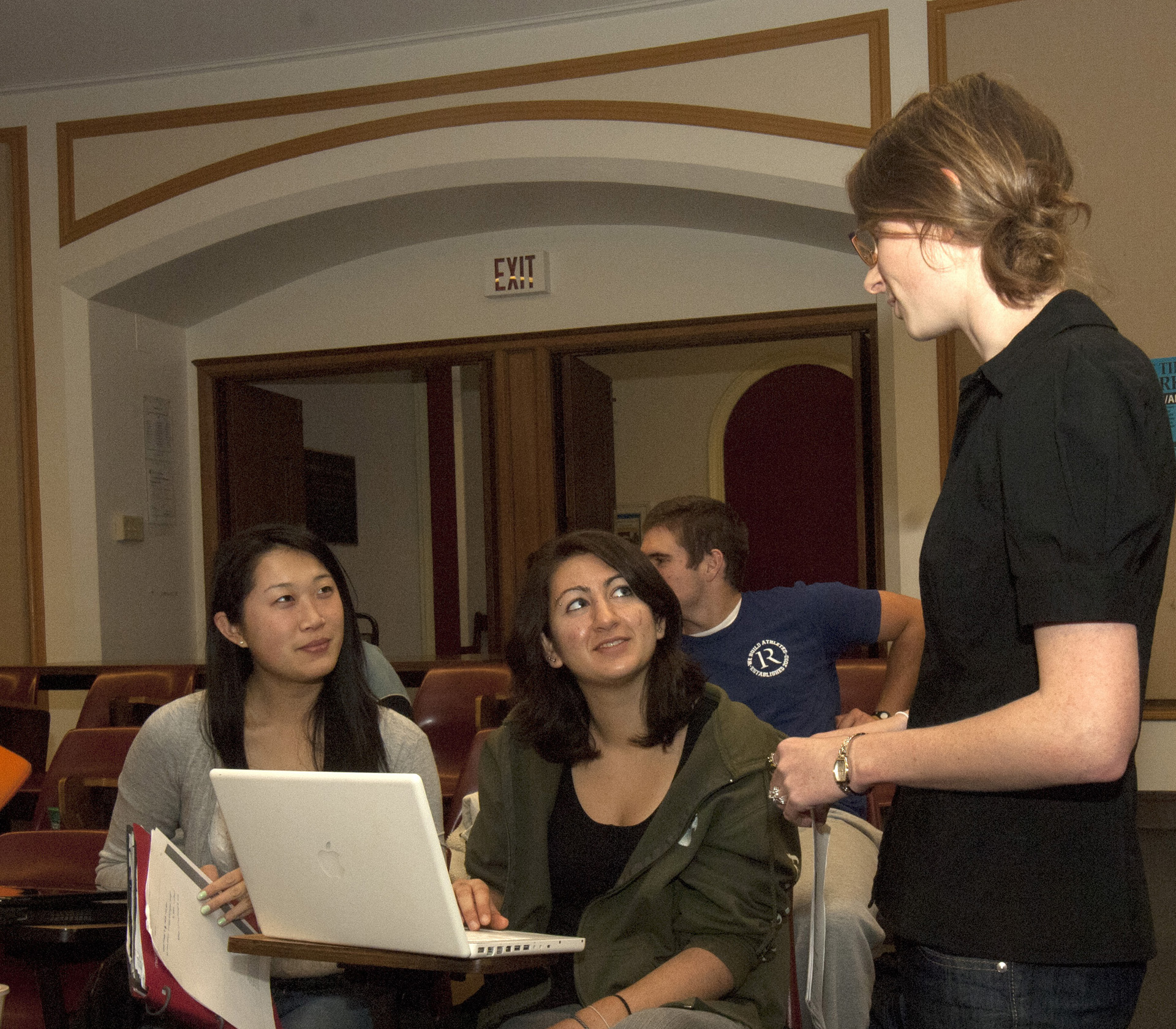
Washington University in St. Louis has joined a national experiment to develop a new generation of college science and engineering faculty, one equipped to excel in the classroom as well as the lab.
In 2003, the University of Wisconsin-Madison founded the Center for the Integration of Research, Teaching and Learning (CIRTL). The center’s mission is to prepare science graduate students to be as bold and creative in the classroom as they are in their programs of research.
The CIRTL network has since expanded to 25 research universities, including Washington University. Organizers hope to have as many as 100 members in the next five years.
Supported by the National Science Foundation, CIRTL is working to develop a national faculty in science, technology, engineering and mathematics (STEM). CIRTL focuses on the challenges of improving student learning and increasing diversity in STEM.
CIRTL, says Kathryn Miller, PhD, professor and chair of the Department of Biology in Arts & Sciences, provides a new philosophical and strategic springboard for individual campuses to develop programs aimed at giving graduate students in the sciences, engineering and math the skills and tools to be creative and rigorous in the classroom.
“CIRTL is organized around three core ideas, called the CIRTL pillars: teaching-as-research, learning communities and learning-through-diversity,” Miller says.
A foundational CIRTL concept is that improving one’s teaching boils down to the key question “What have my students learned?” This question, Miller argues, can be addressed in each classroom by adapting the experimental method familiar to scientists: hypothesis generation, experiment, observation, analysis and improvement. This approach is called “teaching-as-research,” Miller says.
“The WUSTL CIRTL learning community will introduce graduate students and postdoctoral fellows to ‘active learning’ and inquiry-based approaches to teaching,” Miller says. “We hope some of them will also participate in ‘teaching-as-research’ projects.”
As an example, she cites the WU-STAR (STEM Teaching-as-Research) internships, a pilot project that is allowing four graduate students to develop teaching-as-research projects in collaboration with The Teaching Center and faculty members Eleanor Pardini, PhD, lecturer in environmental studies and biology, Tiffany Knight, PhD, associate professor of biology, and Joseph Jez, PhD, associate professor of biology.
The WU-STAR interns are making curricular modifications to biology courses being taught this spring. With staff from the Center for Integrative Research on Cognition, Learning and Education (CIRCLE), the interns are learning how to evaluate the effects of these modifications on student learning.
They are also meeting with staff from The Teaching Center for weekly discussions of teaching-as-research. The WU-STAR interns are getting a comprehensive view of teaching-as-research and of teaching as an endeavor among a community of scholars — rather than an isolated experience.
CIRTL organizers envision that graduate students will take on the roles of “fellow,” “practitioner” or “scholar,” depending on the time they can commit to projects. The goal is that 20 percent of graduate students at member institutions be fellows, 10 percent be practitioners and 2 percent be scholars.”
“We’re particularly concerned about the postdoctoral fellows,” Miller says, “because graduate students are required to teach and to participate in training on teaching, but it is less clear how postdoctoral fellows can fit this training into their other responsibilities.”
The CIRTL website cirtl.net provides a virtual forum for formal and informal interactions among registered members of the center.
The website offers online courses about issues related to teaching, a café where people can meet for informal discussions at “coffee hour,” a virtual conference room for formal meetings, CIRTL-casts (webcasts) for one-shot seminars and an exchange program that allows graduate students and postdoctoral fellows who have teaching-as-research projects to present their work at other institutions in the consortium.
To learn more, interested faculty can contact Miller at miller@biology.wustl.edu or (314) 935-6850.